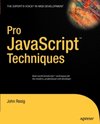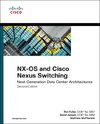
-
 Anglický jazyk
Anglický jazyk
Ontology (information science)
Autor: Source: Wikipedia
Source: Wikipedia. Pages: 73. Chapters: Ontology, Cyc, Standard upper ontology, Semantic interoperability, POSC Caesar, Formal concept analysis, ISO 15926, Controlled vocabulary, Gene Ontology, Process ontology, Ontology components, Ontology versioning,... Viac o knihe
Na objednávku, dodanie 2-4 týždne
20.25 €
bežná cena: 22.50 €
O knihe
Source: Wikipedia. Pages: 73. Chapters: Ontology, Cyc, Standard upper ontology, Semantic interoperability, POSC Caesar, Formal concept analysis, ISO 15926, Controlled vocabulary, Gene Ontology, Process ontology, Ontology components, Ontology versioning, General Architecture for Text Engineering, Domain engineering, Geopolitical ontology, Semantic reasoner, Ontological translator, Knowledge engineering, IDEF5, Semantic spectrum, Ontology alignment, Formal ontology, Ontology engineering, NeuroLex, Integrated Operations in the High North, Ontology editor, Semantically-Interlinked Online Communities, Agricultural Ontology Service, Object-centered high-level reference ontology, Open Biomedical Ontologies, DOGMA, OBO Foundry, Ontology-based data integration, General Formal Ontology, AGROVOC, Comparative Toxicogenomics Database, Ontology chart, Ontology for Biomedical Investigations, TIME-ITEM, Infosphere, Object-oriented design ontology, Soft ontology, Companions Project, Semantic integration, TOVE Project, SALERO, Neuroscience Information Framework, UMBEL, Process Specification Language, FRBRoo, Minimal mappings, KAON, Ontology language, Semantic matching, Lightweight ontologies, Weak ontology, Ontology double articulation, OntoWiki, Swoogle, Description of a Project, Suggested Upper Merged Ontology, LOOM, Basic Formal Ontology, DogmaModeler, Knowledge Interchange Format, Ontology modularization, Semantic Architecture, RNA Ontology Consortium, Tbox, SmartMatch, BRENDA tissue ontology, Abox, NeOn Toolkit, PROTON, Ontology Inference Layer, OntoCAPE, Unique name assumption, Protégé, DAML+OIL, Ontology merging, Ontology library, GOLD, Foundational Model of Anatomy, Sigma knowledge engineering environment, Ontology Definition MetaModel, Disease ontology. Excerpt: In information science, an upper ontology (top-level ontology, or foundation ontology) is an ontology which describes very general concepts that are the same across all knowledge domains. The most important function of an upper ontology is to support very broad semantic interoperability between a large number of ontologies accessible "under" this upper ontology. As the metaphor suggests, it is usually a hierarchy of entities and associated rules (both theorems and regulations) that attempts to describe those general entities that do not belong to a specific problem domain. The seemingly conflicting use of metaphors implying a solid rigorous bottom-up "foundation" or a top-down imposition of somewhat arbitrary and possibly political decisions is no accident - the field is characterized by controversy, politics, competing approaches and academic rivalry. Debates notwithstanding, it can be said that a very important part of each upper ontology can be considered as the computational implementation of natural philosophy, which itself is a more empirical method for investigating the topics within the philosophical discipline of physical ontology. Library classification systems predate these upper ontology systems. Though library classifications organize and categorize knowledge using general concepts that are the same across all knowledge domains, neither system is a replacement for the other. Upper ontologies are also commercially valuable, creating competition to define them. Peter Murray-Rust has claimed that this leads to "semantic and ontological warfare due to competing standards" , and accordingly any standard foundation ontology is likely to be contested among commerci...
- Vydavateľstvo: Books LLC, Reference Series
- Rok vydania: 2012
- Formát: Paperback
- Rozmer: 246 x 189 mm
- Jazyk: Anglický jazyk
- ISBN: 9781156104972

 Nemecký jazyk
Nemecký jazyk 










